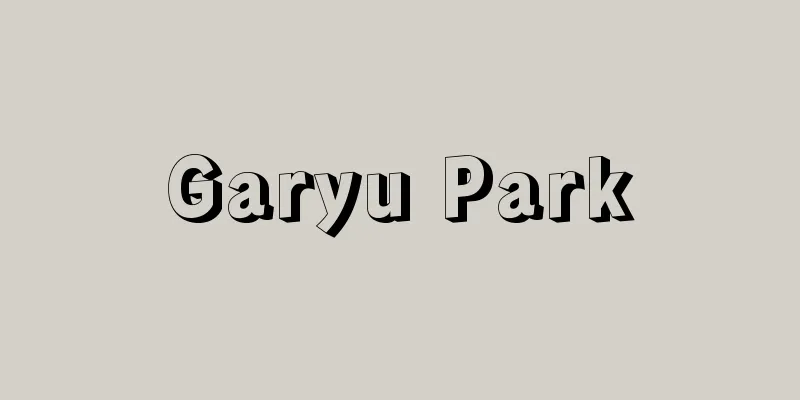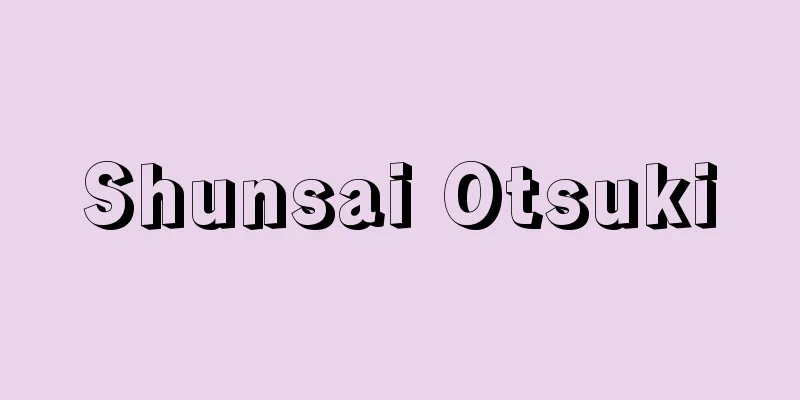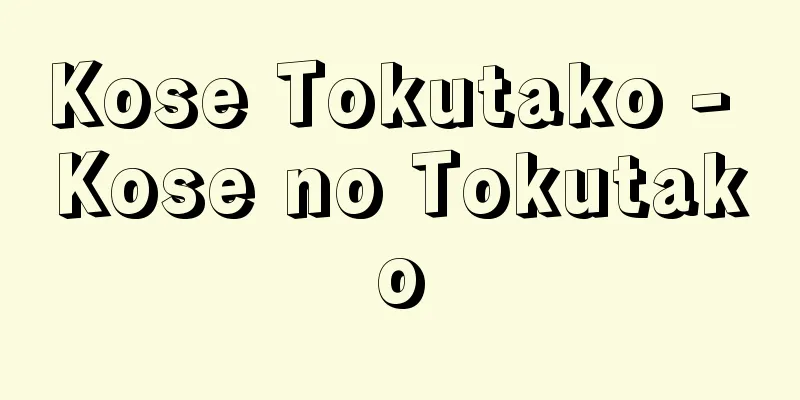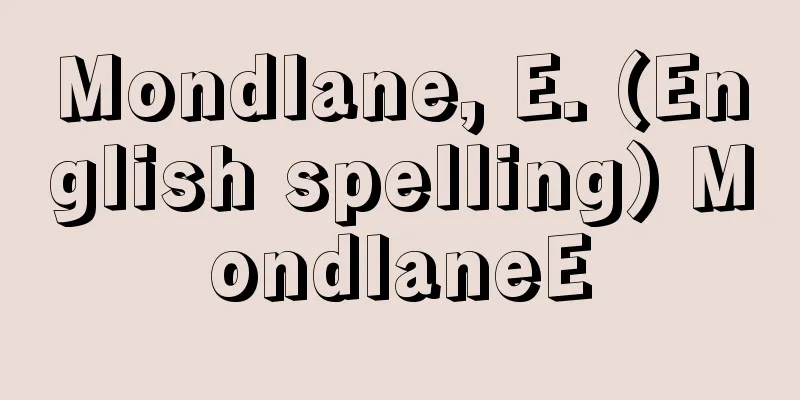Nature - Shizen (English spelling) nature English
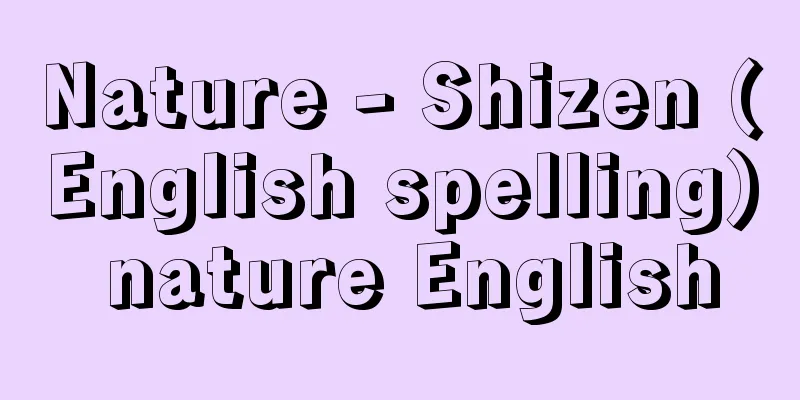
|
Originally, nature is something that exists or develops according to its own nature. Therefore, in many European languages, "nature" and "nature" are expressed with the same word. What is included in what is called "nature" has been considered in various ways depending on what is considered to be the "nature" of each thing and what is considered to be the opposite of that nature. Since the modern era, the most typical usage of "nature" is to contrast humans with nature, and to talk about "nature" in contrast to human intervention and interference, and to man-made things. In this sense, "nature" is anything that is not touched by human hands. However, "nature" is also spoken of in relation to humans. "Human nature" is precisely the nature of humans. Here, what is being contrasted with human nature is, on the one hand, the creator of all nature (God), and, on the other hand, the specific society to which each individual human belongs, and the institutions and culture of that society. Society, institutions, and culture (let's call these "cultural entities") are, of course, created by humans, and just as in the case of man-made objects and nature, here too, the intellectual creativity and freedom of humans who create such cultural entities are contrasted with "human nature." The basis for contrasting nature (including human nature) with humans (their creativity) is the belief that humans are part of nature, but at the same time, they are beings that transcend (merely) nature. However, when attempting to assign such a unique position to humans, the question arises as to what really belongs to "human nature" and what does not. The question is whether human intellectual creativity and freedom, which are contrasted with nature, also belong to human nature, and whether forming society, living under various systems, and creating culture are also part of human nature. If all such questions are answered in the affirmative, then using science and technology (as part of culture) to tamper with various things and destroy what is called "nature," and conversely, predicting such "destruction of nature" and taking measures to prevent it, would also be included in "human nature" and, by extension, in "nature." Thus, the contrast between nature and humans becomes extremely uncertain. Moreover, in the modern and mechanistically based " natural science," "nature" is certainly limited to "natural" entities in terms of its subject area, as opposed to the aforementioned "cultural entities," but its scope of application is very broad, and applies to both human beings themselves and manmade objects. In this case, anything composed of parts whose nature is the "law of nature " is "natural," and this nature (the law of nature) does not allow for any interference or intervention (apart from "supernatural" powers and miracles), and in that sense, everything is always in a "natural" state according to its own nature. Furthermore, if we could say that "cultural entities," which are the opposites in the subject area, are by no means independent of natural entities (including human beings), but are rather one aspect of the way natural entities are, then the contrast between nature and human beings would become even weaker. Currently, as natural scientific research into humans progresses and machines begin to imitate humans (artificial intelligence), the question of humans' place in the world is being questioned anew; at the same time, this question can be said to call for a reconsideration of the concept of "nature." [Nobuharu Tanji] "The Formation of Science and the Natural World" by Goichi Miyake (1973, Misuzu Shobo)" ▽ "The Great Chain of Being" by A.O. Lovejoy, translated by Kenji Naito (1975, Shobunsha)" ▽ "Cognitive Philosophy: From Brain Science to Philosophy of Mind" by P.M. Churchland, translated by Yukihiro Nobuhara and Shoji Miyajima (1997, Sangyo Tosho)" ▽ "The Subliminal Mind: The Future of a Latent View of Humanity" by Shinsuke Shimojo (Chuko Shinsho)" [Reference items] | | |Source: Shogakukan Encyclopedia Nipponica About Encyclopedia Nipponica Information | Legend |
|
元来、自然とは、自(みずか)らの本性に従って(自(おの)ずから然(しか)るべく)あるもの、あるいは生成するもののことである。したがって、多くのヨーロッパ語において、「自然」と「本性」とは同じことばで言い表される。そして、「自然」とよばれるもののなかに何が含まれるかは、おのおののものの「本性」として何を考えるか、また、その本性に対立するものとして何を考えるかによって、さまざまに考えられてきた。 近代以降、もっとも典型的な「自然」の用法は、人間と自然とを対置し、人間による介入・干渉、人工品との対比において「自然」を語る用法であろう。この意味では、人手の加わらないものが「自然」なのである。しかしまた、人間についても「自然」が語られる。「人間本性」human natureとは、まさに人間における自然である。ここで人間の自然と対比されているのは、一方では全自然の創造者(神)であるが、他方では個々の人間が属する特定の社会、その社会がもつ制度や文化といったものであろう。社会、制度、文化(これらをかりに「文化的存在」とよぼう)は、もちろん人間がつくったものであり、人工品と自然の場合と同様に、ここでも、このような文化的存在をつくる人間の知的創造性、自由が、「人間の自然」と対置されているのである。 このように、自然(人間の自然も含めて)と人間(の創造性)とを対置することの基盤には、人間は、自然の一部でありながら、同時に(単なる)自然を超えた存在である、という信念がある。だが、人間にこのような特異な位置づけを与えようとする場合、はたして何が「人間の自然(本性)」に属し、何が属さないのか、という問題が生ずる。自然と対置された人間の知的創造性、自由も、人間の自然(本性)に属するのではないのか、社会を形成し、さまざまの制度のもとで生活し、文化を創造することも、人間の本性的なあり方ではないのか、という問題である。もしこのような問いに、すべて肯定的に答えるならば、(文化の一部としての)科学・技術を駆使してさまざまの事物に手を加え、いわゆる「自然」を破壊することも、また逆に、そのような「自然破壊」を予測し、それを未然に防ぐ手だてを講ずることも、「人間の自然」に含まれ、ひいては「自然」に含まれることになるであろう。かくして、自然と人間との対比は、きわめて不確かなものとなる。 また、近代以降の機械論的発想に基づく「自然科学」における「自然」も、確かに対象領域のうえで、前記の「文化的存在」に対して「自然的」存在に限定されているが、その適用範囲は非常に広く、人間自身にも人工品にも適用される。そこでは、「自然法則」をその本性とするような諸部分から構成されたものは、すべて「自然」なのであり、その本性(自然法則)は、(「超‐自然的」な力、奇跡を別とすれば)いかなるものの干渉・介入をも許さぬものであって、その意味では、すべてのものがつねに、みずからの本性に従った「自然」なあり方をしていることになる。さらにまた、対象領域のうえでの対立者である「文化的存在」も、けっして(人間も含めた)自然的存在から独立したものではなく、むしろ自然的存在のあり方の一側面である、といえるならば、自然と人間との対比は、ますます薄弱になるであろう。 現在、人間に関する自然科学的探究が進展し、また、機械による人間の模倣(人工知能)が進むなかで、世界のなかでの人間の位置が改めて問われており、それは同時に、「自然」という概念の再考を求める問いである、といえよう。 [丹治信春] 『三宅剛一著『学の形成と自然的世界』(1973・みすず書房)』▽『A・O・ラヴジョイ著、内藤健二訳『存在の大いなる連鎖』(1975・晶文社)』▽『P・M・チャーチランド著、信原幸弘・宮島昭二訳『認知哲学――脳科学から心の哲学へ』(1997・産業図書)』▽『下條信輔著『サブリミナル・マインド――潜在的人間観のゆくえ』(中公新書)』 [参照項目] | | |出典 小学館 日本大百科全書(ニッポニカ)日本大百科全書(ニッポニカ)について 情報 | 凡例 |
Recommend
Iconography
Iconography (→ Buddhist iconography). Works of art...
Kamienski, M. - Kamienski
…In these times, Polish national opera, national ...
Potamogeton fryeri (English spelling)
…[Maki Sachiko]. . . *Some of the terminology tha...
Oxidoreductase - Oxidoreductase
A general term for enzymes that catalyze redox re...
Booth, William
Born: April 10, 1829, Nottingham [Died] August 20,...
Root-knot nematode (English spelling)
A general term for a genus in the class Nematoda ...
Lindau
… The Carolingian period (late 8th century to 10t...
Corporate division - divestment (UK)/divestitures (US)
The monopoly division policy is a method of oligop...
Austronesian peoples - Austronesian peoples
Austronesian is a general term for peoples who spe...
Flower arrangement (English: flower arrangement)
Arranging flowers using flowers, leaves, branches,...
Ground squirrel
A type of terrestrial squirrel that lives in burro...
Shell midden pottery
...The name comes from ES Morse's description...
disc clutch
...A friction clutch is a clutch that connects tw...
Uirouri - Uirouri
Kabuki kyogen. One of the 18 major Kabuki plays. A...
Angora rabbit - Angora rabbit (English spelling)
A type of rabbit. It originates from the Ankara re...


